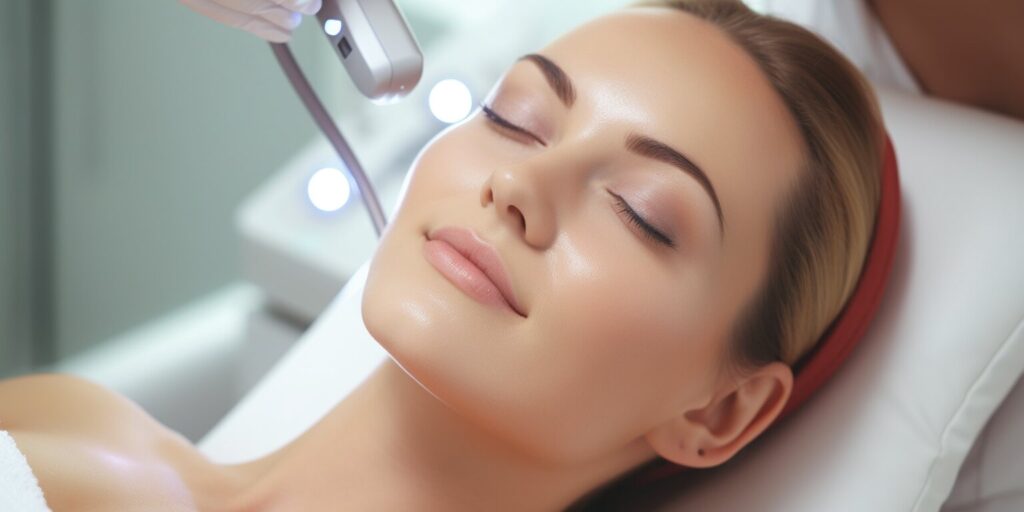When it comes to skincare, many people are constantly on the lookout for products that promise to improve the health and appearance of their skin. The beauty industry offers a wide range of options, from drugstore brands to high-end luxury products. However, in recent years, there has been a growing interest in medical-grade skincare products. These products are often recommended by dermatologists and are known for their effectiveness in addressing various skin concerns. In this article, we will explore the benefits of using medical-grade skincare products and why they may be a worthy addition to your skincare routine.
What Are Medical-Grade Skincare Products?
Medical-grade skincare products are a category of skincare products that are developed and formulated with a focus on efficacy and safety. Unlike over-the-counter (OTC) skincare products, which are readily available in drugstores and department stores, medical-grade products are typically sold through licensed healthcare professionals, such as dermatologists and plastic surgeons.
These products are held to higher standards when it comes to their formulation, quality, and clinical testing. They often contain higher concentrations of active ingredients that have been proven effective through scientific research. Additionally, medical-grade skincare products are subject to rigorous quality control measures to ensure purity and consistency.
Benefits of Medical-Grade Skincare Products
Now that we have a basic understanding of medical-grade skincare products let’s delve into their numerous benefits.
1. Efficacy
One of the primary advantages of medical-grade skincare products is their efficacy. These products are formulated with a deep understanding of skin physiology and are designed to deliver noticeable results. They often contain active ingredients like retinoids, antioxidants, growth factors, and peptides that are proven to address specific skin concerns, such as wrinkles, fine lines, hyperpigmentation, and acne.
The higher concentrations of active ingredients in medical-grade products mean that they can penetrate the skin more effectively, delivering targeted treatment and promoting skin health. This efficacy is particularly important for individuals with stubborn or complex skin issues who may not respond well to OTC products.
2. Clinical Research
Medical-grade skincare products undergo extensive clinical research and testing to validate their claims. These studies are conducted by dermatologists, plastic surgeons, and other healthcare professionals who specialize in skin care. The results of these studies provide scientific evidence of the product’s effectiveness and safety.
Consumers can have confidence in the quality and reliability of medical-grade skincare products, knowing that they have been tested in controlled clinical settings. This level of transparency and accountability sets them apart from many OTC skincare products that may lack scientific validation.
3. Customization
Another benefit of medical-grade skincare products is the ability to customize your skincare routine based on your individual needs. Dermatologists and skincare professionals can assess your skin’s condition and recommend specific products tailored to your concerns. This personalized approach ensures that you are using the most suitable products for your skin type and goals.
4. Safety
Medical-grade skincare products are subject to strict quality control measures to ensure their safety and purity. They are often free from common irritants and allergens, making them suitable for sensitive and problematic skin. Furthermore, these products are less likely to contain potentially harmful additives, fragrances, and preservatives commonly found in some OTC skincare brands.
5. Long-Term Benefits
Consistent use of medical-grade skincare products can lead to long-term benefits for your skin. Many of these products not only address immediate concerns but also work to improve overall skin health. This can result in a more youthful and radiant complexion, as well as a reduction in the signs of aging and damage caused by environmental factors.
6. Professional Guidance
When you use medical-grade skincare products, you often have the opportunity to seek professional guidance from a dermatologist or skincare specialist. They can monitor your progress, make adjustments to your skincare routine as needed, and provide expert advice on achieving your skincare goals. This level of support can be invaluable, especially if you have specific skin conditions that require careful management.
Active Ingredients in Medical-Grade Skincare
In the realm of skincare, the effectiveness of medical-grade products often hinges on their meticulously selected and scientifically validated active ingredients. These potent components are the driving force behind the transformative results that users seek. Here, we delve into the key active ingredients commonly found in medical-grade skincare:
- Retinoids and Retinol: Retinoids, derived from vitamin A, are renowned for their ability to stimulate collagen production, reduce wrinkles, and promote cell turnover. Retinol, a milder form, is available in various concentrations to suit different skin types.
- Vitamin C and Antioxidants: Vitamin C is a powerhouse antioxidant that combats free radicals, brightens skin, and fades hyperpigmentation. Medical-grade formulations often contain stable and highly concentrated vitamin C for optimal results.
- Hyaluronic Acid: This hydrating superstar can hold up to 1000 times its weight in water, plumping the skin and reducing the appearance of fine lines and wrinkles. It’s a staple in medical-grade serums and moisturizers.
- Growth Factors and Peptides: These ingredients help stimulate collagen production and promote skin repair. They are especially effective in reducing the signs of aging and improving skin texture.
Choosing the right medical-grade skincare product means understanding your skin’s specific needs and selecting products that feature these active ingredients in concentrations tailored to your concerns. When used consistently and under the guidance of a skincare professional, products containing these powerful actives can lead to remarkable improvements in your skin’s health and appearance.
Common Skin Concerns Addressed by Medical-Grade Skincare
Medical-grade skincare products have gained prominence for their effectiveness in addressing a wide array of common skin concerns. These specialized formulations are designed to precisely target specific issues and deliver noticeable results. Here are some of the most prevalent skin concerns that can be effectively addressed by using medical-grade skincare:
- Acne and Acne Scarring: Medical-grade products often contain potent ingredients like salicylic acid, benzoyl peroxide, and retinoids, which can help combat acne breakouts and minimize the appearance of acne scars. These ingredients unclog pores, reduce inflammation, and promote skin renewal.
- Fine Lines and Wrinkles: Products enriched with retinoids, peptides, and hyaluronic acid can help diminish the appearance of fine lines and wrinkles. They stimulate collagen production, improve skin elasticity, and provide deep hydration to create a smoother complexion.
- Hyperpigmentation and Dark Spots: Skin discolorations caused by sun damage, melasma, or age spots can be effectively treated with medical-grade skincare products containing ingredients like hydroquinone, kojic acid, and vitamin C. These ingredients work to fade dark spots and even out skin tone.
- Uneven Skin Texture and Tone: Medical-grade exfoliants containing alpha hydroxy acids (AHAs) or beta hydroxy acids (BHAs) can help if you struggle with rough or uneven skin texture. These ingredients slough off dead skin cells, revealing smoother and more radiant skin.
By choosing medical-grade skincare products tailored to your specific skin concerns and using them consistently, you can achieve remarkable improvements in the health and appearance of your skin. However, it’s crucial to consult with a skincare professional to determine the best regimen for your unique needs and to ensure that these products are used safely and effectively.
How to Incorporate Medical-Grade Skincare Products into Your Routine
If you’re interested in integrating medical-grade skincare products into your routine, it’s essential to start with a consultation with a licensed skincare professional. They can assess your skin’s needs and recommend the most suitable products for you. It’s crucial to follow their guidance and use the products as directed to maximize their benefits and minimize the risk of adverse reactions.
Additionally, be prepared to invest in these products, as they tend to be more expensive than their OTC counterparts. However, many users find that the results justify the cost, especially when dealing with challenging skincare issues.
Conclusion
Medical-grade skincare products offer a range of benefits, including superior efficacy, rigorous testing, customization, safety, long-term improvements, and professional guidance. While they may come with a higher price tag, their ability to deliver noticeable results and address specific skin concerns makes them a valuable addition to many skincare routines. If you’re looking to achieve healthier, more radiant skin, consider consulting with a dermatologist or skincare professional to explore the possibilities of medical-grade skincare products tailored to your unique needs.



